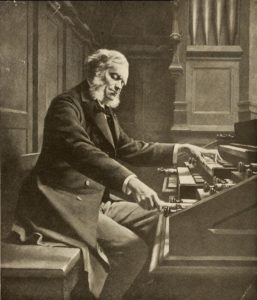Franck, Violin Sonata in A Major
 I don’t usually remember the specific occasion when I heard a particular piece of music for the first time. I become familiar with a piece by listening to it many times, and the first hearing tends to fade from memory. But I do recall watching a television program many years ago in which Isaac Stern played the final movement of Franck’s Violin Sonata. I’m almost certain that I had not heard the work prior to that time because I found it so memorable. It is generally regarded as one of Franck’s best works.
I don’t usually remember the specific occasion when I heard a particular piece of music for the first time. I become familiar with a piece by listening to it many times, and the first hearing tends to fade from memory. But I do recall watching a television program many years ago in which Isaac Stern played the final movement of Franck’s Violin Sonata. I’m almost certain that I had not heard the work prior to that time because I found it so memorable. It is generally regarded as one of Franck’s best works.
Some time later when I was teaching music theory, I had my students analyze the sonata as a major project when they reached advanced harmony. The sonata has the same kind of chromaticism as the late 19th-century compositions of Liszt and Wagner, with all the twists and turns and ambiguities, but in a much more accessible form. (Not all my students agreed.) It has a simpler texture and structural clarity that I always find appealing. Combined with elegant and lyrical melodies, the work is quite memorable.
César Franck (1822-1890) struggled with composition most of his life. He was an accomplished pianist who made a name for himself as an organist instead. His father’s early efforts to push and promote his career achieved little, and Franck settled into teaching and holding church organist jobs. He rose to positions at the Paris Conservatoire and as organist and maître de chapelle at Sainte-Clotilde.
His fame as a composer came mostly from late works: his Symphony in D Minor, Symphonic Variations, and handful of smaller works including this violin sonata (composed in 1886). But Franck left a considerable legacy. He followed the style of Liszt and Wagner in many ways, but led the move to create a distinctly French style with his students Vincent d’Indy, Henri Duparc, Ernest Chausson, and Louis Vierne.
Vierne, his student and later organist at Notre-Dame, wrote that Franck showed a “constant concern for the dignity of his art, for the nobility of his mission, and for the fervent sincerity of his sermon in sound . . . Joyous or melancholy, solemn or mystic, powerful or ethereal: Franck was all those at Sainte-Clotilde.”



